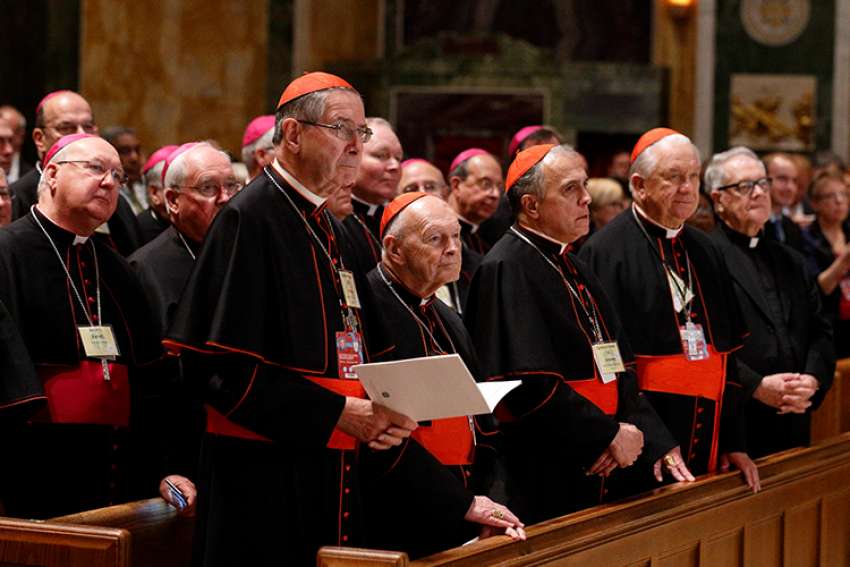Macdonald rejects the common public take that the worst part of Cosby’s criminality was the hypocrisy of such conduct by someone dubbed “America’s Dad” for his personae as Cliff Huxtable on The Cosby Show.
“I disagree the worst part was the hypocrisy,” Macdonald says. “It was the raping. Then it was the drugging. And the manipulating. The hypocrisy belongs on about page four of the list.”
Blunt as the punchline is, it’s an object lesson in the vital need to see things as they are, and call them what they are, rather than surrounding them in softening verbal fog. In a variation that brutally underscores the absurdity of our human impulse to blur, Macdonald imagines a young woman calling 911 and shouting: “Help, help, hypocrisy!” after being sexually assaulted by Cosby.
Cringe-inducing as such humour might be, it has particular power for Catholics this summer in the wake of the turmoil and outrage caused by the disgraced former Cardinal Ted McCarrick. Indeed, were it up to me, I’d seek to ensure every single, solitary member of the clergy and Church hierarchy watched the Macdonald bit, and committed to living out the truth it conveys.
For lay Catholics, the blunt, even brutal, truth is that this is our Church. This is the institution in which we literally place our faith. We have to unflinchingly accept that truth in all its awful implications. We must refuse to dish it off as aberration and perversity, to soothe its ugly rawness with the spiritual emollient that the Church is full of sinners or we wouldn’t need a Church.
The allegations of sexual abuse of young children and adult seminarians testify to an individual with a sick soul. Yet, an organizational structure protected him and actively promoted him to its upper reaches despite the allegations. It made him a Prince of the Church. It flagrantly crossed the line Pope Francis has so clearly drawn between sin and corruption. Sin is disobedience to God’s law. Corruption, the Holy Father distinguishes, is the belief we’re entitled to disobey because of our privileged position in life.
The details of the McCarrick case suggest such corrupting entitlement was fully operative, but, worse, among those who were informed and would not hear. The question, one I’ve heard repeated in conversations with lay Catholics throughout the summer, is not whether such corruption exists. It is how we are to respond to these latest revelations of its ubiquity?
Do we, contra Norm Macdonald, still insist the worst part is the hypocrisy? Do we sink further into silent rage at another failure of the hierarchy to root out rot? Or do we take the unthinkable step of walking away from the Church by routinely skipping Mass or ceasing to live as Catholics?
The summer’s best answer came from a brilliant friend who said simply and eloquently: “Our call is to help cleanse the Church, not to abandon Her.” Best answer? It’s the only true answer. But it is far from being the easiest answer.
Its difficulty makes it so imperative Church leaders see the foundational truth Norm Macdonald was driving at. They will fail absolutely if they fail to see the McCarrick crisis for what it authentically is. It is not merely allegations of churchmen behaving badly. It’s an existential threat to the teaching authority of the Church itself, to its capacity to communicate Christian meaning.
Why would anyone, after all, feel a need to adhere to Church teaching when those who lead it actively reward those who may be defying it? Anger arising could easily violate the basic capacity to believe, never mind obey.
Violate is the operative word for the McCarrick quagmire in an assault on the Hope that calls to us from the Cross. Yet call to us it does, and it is the Cross we must heed most clearly, never losing its meaning in the fog of human hypocrisy or even in the violent pain of our own hearts.
(Stockland is publisher of Convivium.ca and senior fellow with Cardus.)


